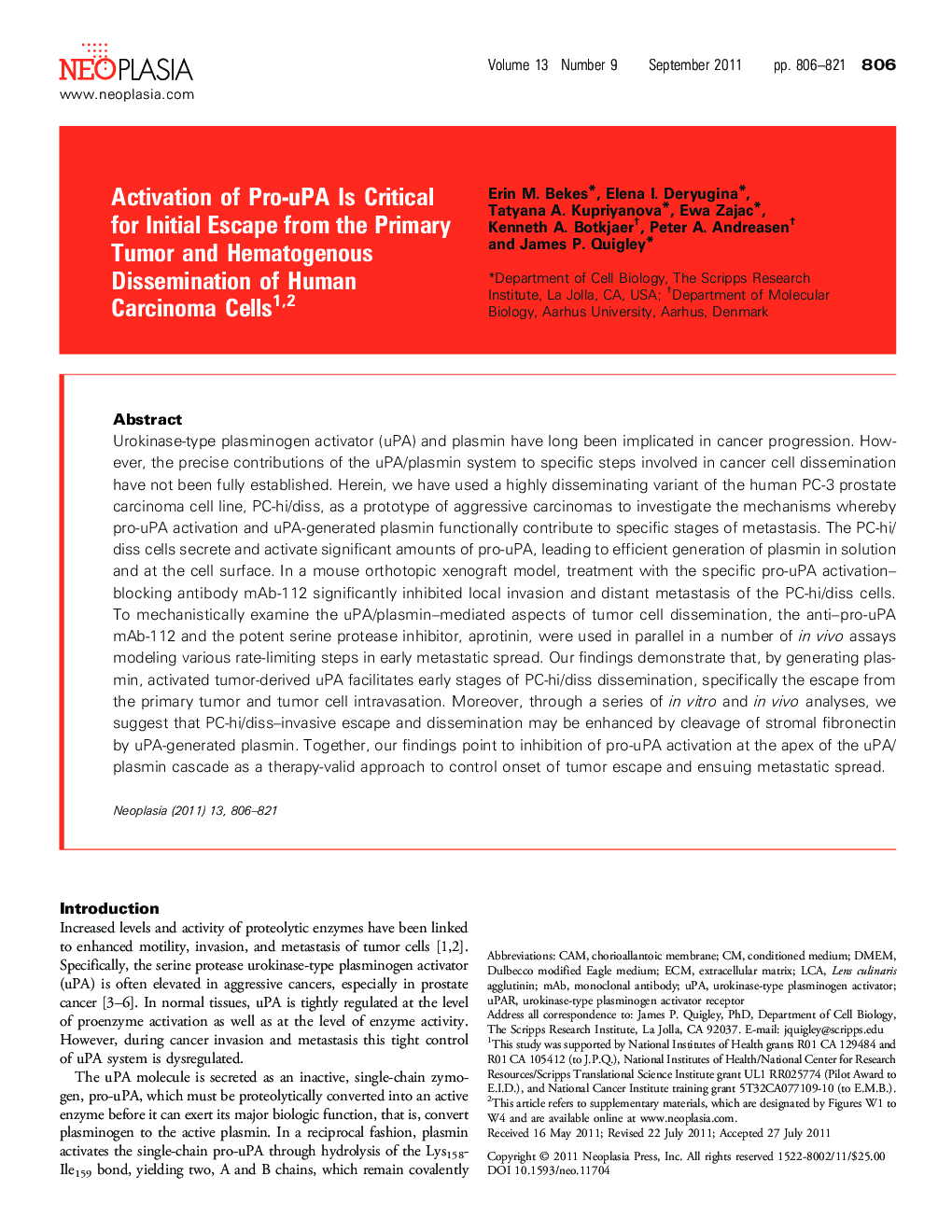| Article ID | Journal | Published Year | Pages | File Type |
|---|---|---|---|---|
| 2151767 | Neoplasia | 2011 | 18 Pages |
Abstract
Urokinase-type plasminogen activator (uPA) and plasmin have long been implicated in cancer progression. However, the precise contributions of the uPA/plasmin system to specific steps involved in cancer cell dissemination have not been fully established. Herein, we have used a highly disseminating variant of the human PC-3 prostate carcinoma cell line, PC-hi/diss, as a prototype of aggressive carcinomas to investigate the mechanisms whereby pro-uPA activation and uPA-generated plasmin functionally contribute to specific stages of metastasis. The PC-hi/diss cells secrete and activate significant amounts of pro-uPA, leading to efficient generation of plasmin in solution and at the cell surface. In a mouse orthotopic xenograft model, treatment with the specific pro-uPA activation-blocking antibody mAb-112 significantly inhibited local invasion and distant metastasis of the PC-hi/diss cells. To mechanistically examine the uPA/plasmin-mediated aspects of tumor cell dissemination, the anti-pro-uPA mAb-112 and the potent serine protease inhibitor, aprotinin, were used in parallel in a number of in vivo assays modeling various rate-limiting steps in early metastatic spread. Our findings demonstrate that, by generating plasmin, activated tumor-derived uPA facilitates early stages of PC-hi/diss dissemination, specifically the escape from the primary tumor and tumor cell intravasation. Moreover, through a series of in vitro and in vivo analyses, we suggest that PC-hi/diss-invasive escape and dissemination may be enhanced by cleavage of stromal fibronectin by uPA-generated plasmin. Together, our findings point to inhibition of pro-uPA activation at the apex of the uPA/plasmin cascade as a therapy-valid approach to control onset of tumor escape and ensuing metastatic spread.
Keywords
Related Topics
Life Sciences
Biochemistry, Genetics and Molecular Biology
Cancer Research
Authors
Erin M. Bekes, Elena I. Deryugina, Tatyana A. Kupriyanova, Ewa Zajac, Kenneth A. Botkjaer, Peter A. Andreasen, James P. Quigley,
